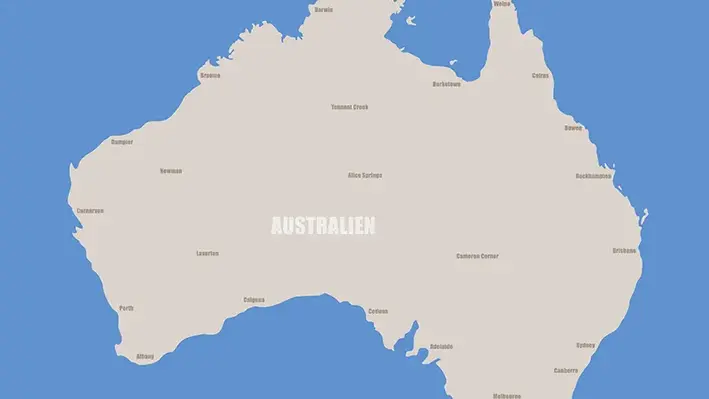

Woodside Energy is currently executing a number of decommissioning projects offshore Australia, and in its Q1 2025 report, outlined progress in the quarter.
The company concluded the multi-year decommissioning programme at Enfield, offshore Australia, safely and successfully completing the removal of all facilities, with the recovery of final infrastructure in February. Only survey activities remain. It commenced deconstruction of the Griffin Riser Turret Mooring at the Australian Marine Complex in preparation for recycling and reuse, and continued decommissioning activities at Bass Strait, completing the plug and abandonment activities for 27 wells, including on the Bream B platform. Plug and abandonment activities commenced on the Kingfish A and Cobia platforms.
Subsequent to the quarter, Woodside concluded the 10-well Stybarrow plug and abandonment campaign, took delivery of a mobile offshore drilling unit at the Minerva field, offshore Victoria, and commenced preparations to plug and abandon the first of three Minerva wells.
Woodside is now planning to undertake subsea and well infrastructure removal decommissioning activities within the Angel Field.
In line with requirements under the Environment regulation, the company has submitted an Environment Plan to National Offshore Petroleum Safety and Environmental Management Authority (NOPSEMA) which is currently under assessment, covering removal of redundant subsea infrastructure in the Angel Field.
The Angel subsea and well infrastructure is located around the Angel production platform in Commonwealth waters, approximately 125 km north of Dampier. The subsea infrastructure is in water depths between approximately 77 m and 85 m. Woodside plans to remove redundant Angel subsea infrastructure and three production wells connected to the Angel platform. Subsea infrastructure removal activities are currently planned to commence by 1 December 2026 subject to approvals and vessel availability. Subsea decommissioning activities are currently scheduled for around three months between around Q3 2026 and Q1 2027.
On its website, Woodside underlines its commitment to executing decommissioning activities with a focus on safety and the environment, coupled with efficiency. “Decommissioning is integrated into project planning and operations, from the early stages of development through to the end of field life. This includes conducting assessments to inform our planning and decision making, which is underpinned by science and marine research. In the developing regulatory environment, we continue to listen, learn and respond to our stakeholders, while expanding our global decommissioning experience,” the company says.
Woodside’s decommissioning approach recognises the importance of reusing and recycling material from its decommissioning activities where possible. Its waste mitigation hierarchy prioritises reduction, reuse, recycling, and treatment over disposal.
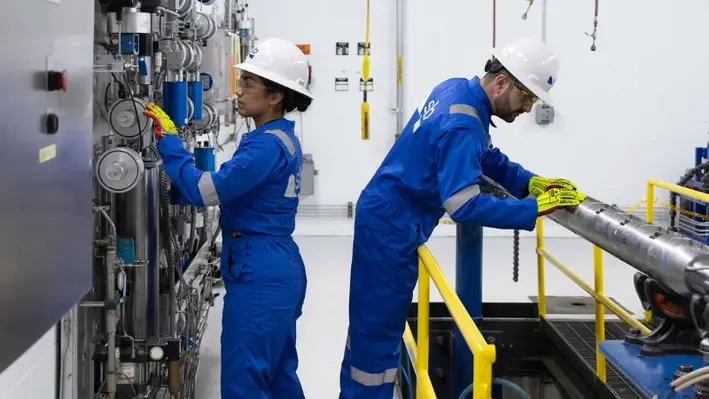

Global energy technology company SLB has unveiled Electris, a portfolio of digitally enabled electric well completions technologies designed to enhance production, improve recovery, and lower the total cost of ownership of oil and gas assets.
Electris completions enable digital control over the full productive zone of the wellbore, delivering real-time production intelligence across the reservoir.
This capability allows operators to predict, adapt, and respond confidently to changing production conditions, by optimising reservoir performance throughout the well’s lifecycle and unlocking reserves typically left behind by conventional systems.
“Electris completions take reservoir management to the next level — making it possible for operators to get more out of their assets with fewer requirements for costly well interventions,” said Paul Sims, president, Production Systems. “With much of the ‘easy’ oil already produced, operators are encountering more and more complex reservoirs. Electris completions can help shift the production economics in these reservoirs — resulting in higher recovery factors that maximise return on investment from the asset.”
To date, more than 100 Electris completions technologies have been installed across five countries. In one case offshore Norway, Electris was deployed in an extended-reach well to increase oil production.
The operator is using data from the system to identify which zones are actively contributing to output, allowing them to optimise oil flow and reduce water production.
By managing water output, the system has also cut the energy required to lift and reinject treated water into the reservoir.
SLB launched the new technology last week in Houston, with plans to roll it out for global operations.
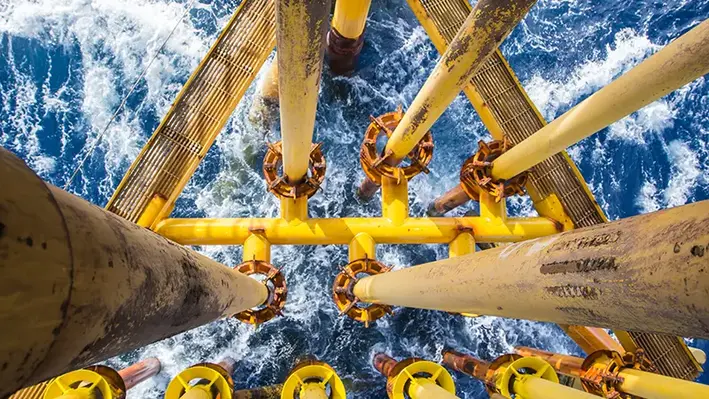
 Material science and technology provider, 3M, has released via Offshore Network a case study illustrating how an Indonesian oil and gas corporation Pertamina Hulu Mahakam (PHM) deployed Ceramic Sand Screen to cost effectively unlock marginal field assets
Material science and technology provider, 3M, has released via Offshore Network a case study illustrating how an Indonesian oil and gas corporation Pertamina Hulu Mahakam (PHM) deployed Ceramic Sand Screen to cost effectively unlock marginal field assets
While coiled tubing-deployed chemical sand consolidation (SCON) or slickline deployed through tubing metallic screens are the conventional approaches to sand control at PHM, they are limited by its operating envelope and technical constraints. There is a need identified to unlock production with a change in filter media material.
3M Ceramic Sand Screens have saved PHM up to 50% cost over SCON solution and delivered 200% higher productivity than through tubing metallic screen solution by integrating 3M advanced ceramic materials into a sand screen assembly.
Assets like in Tunu and Peciko, reservoirs are marginal and multi-layered sand series which are highly unconsolidated and poorly sorted sands with an average of 20 to 30% porosity. 3M Ceramic Sand Screen have been initially trialed in these conditions and enabled in optimising sand control completions.
Within a span of 4 years, more than 80 wells in various fields of PHM have been successfully replicated.
*How 3M solution has impacted to unlock production from marginal assets
*How material change enables optimised and cost-effective sand control completions
*How 3M material science empowers and contributes to their energy customers to develop improved, safer and more sustainable solutions
Click here to learn more.
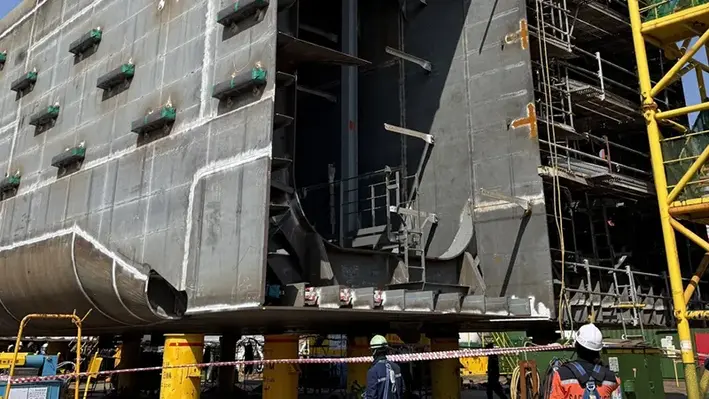
 With key approvals received and multiple contracts in place, Woodside is advancing towards first oil production from its Trion project offshore Mexico in 2028.
With key approvals received and multiple contracts in place, Woodside is advancing towards first oil production from its Trion project offshore Mexico in 2028.
"Since the final investment decision, our teams have tackled challenges head-on, reaching major milestones and entering the fabrication phase," said Stephane Drouaud, Vice President, Trion, while acknowledging the Trion team's dedication and drive in making the project happen.
Three floating production unit (FPU) topside modules are undergoing fabrication work in Ulsan, South Korea. Steel cutting required to prepare the floating storage offloading (FSO) vessel disconnectable turret mooring system (DTM) has been taken care of at the Cosco Shipyard in Qidong, China.
Transocean's Deepwater Thalassa has been hired to spearhead the drilling campaign set for Q1 2026.
Another drilling contract has been reached with SLB to secure the delivery of 18 ultra-deepwater wells over three years. It is also supplying subsea horizontal trees, controls and topside equipment, with manufacturing underway.
Meanwhile, the local teams have made progress on the regulatory front. The environmental permit application has been submitted, and work is underway on the HSE management system permit application.
“We are proud to be a part of Mexico’s energy future,” Stephane said.
“With our ‘one team, one goal’ mindset, I am confident we will continue making history as we deliver Mexico’s first ultra-deepwater development.”
The Trion field lies 180 km off the Mexican coast at a water depth of 2500 m and was discovered by Mexican National Oil Company PEMEX in 2012.
To know more about the global well intervention scene, register here for Offshore Network's upcoming conferences.
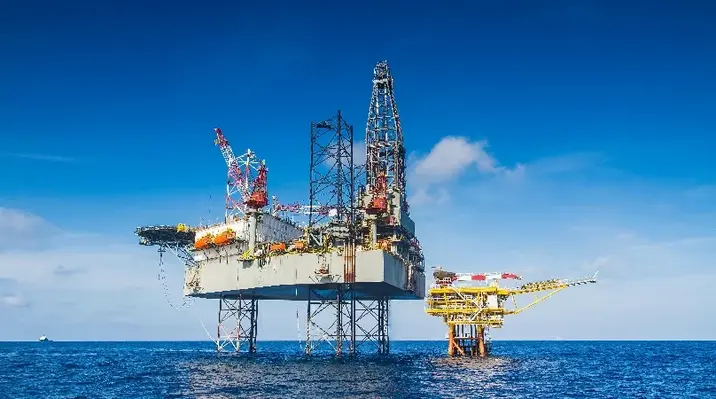
 In yet another move to roll back Biden-era legislation, The U.S. Department of the Interior (DOI) has announced it intends to revise the Bureau of Ocean Energy Management’s 2024 Risk Management and Financial Assurance for OCS Lease and Grant Obligations Rule.
In yet another move to roll back Biden-era legislation, The U.S. Department of the Interior (DOI) has announced it intends to revise the Bureau of Ocean Energy Management’s 2024 Risk Management and Financial Assurance for OCS Lease and Grant Obligations Rule.
The rule increased the financial assurance requirements for offshore operators to ensure they meet their decommissioning obligations and was designed to “better protect the taxpayer from potentially bearing the cost of facility decommissioning and other financial risks associated with OCS development, such as environmental remediation.”
This rule was challenged by the Republican-led states of Louisiana, Mississippi and Texas and oil and gas industry groups, who argued that it would result in "potentially existential consequences" for small and medium-sized companies, although a federal judge earlier this year rejected their bid to block the rule. According to the DOI this rule was estimated to increase financial assurance requirements for offshore oil and gas operators by US$6.9bn in additional bonding, costing businesses an additional US$665mn in premiums each year.
The Trump administration intends to develop a new rule that will supposedly cut costs and red tape and free up billions of dollars for American producers to use to explore and produce oil and gas in the Gulf of America while protecting American taxpayers against high-risk decommissioning liabilities, according to the DOI statement.
“This revision will enable our nation’s energy producers to redirect their capital toward future leasing, exploration, and production all while financially protecting the American taxpayer,” said DOI Secretary Doug Burgum. “Cutting red tape will level the playing field and allow American companies to make investments that strengthen domestic energy security and benefit the Gulf of America states and their communities.”
The Department expects to finalise the rule this year, and will welcome public comments on the proposal.
The Bureau of Ocean Energy Management will continue to require all operators on the Outer Continental Shelf to provide financial assurance for their decommissioning obligations.
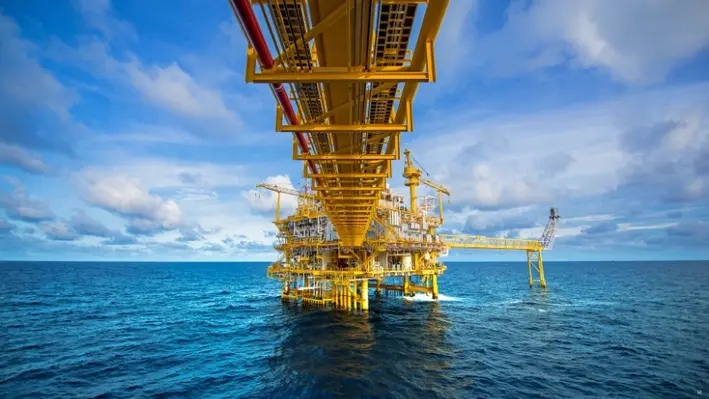

The Norwegian Ministry of Energy has unveiled its 2025 licensing round on the Norwegian Continental Shelf, dubbed APA 2025, marking the largest area ever offered in a single licensing round.
Announced last week, the move aims to bolster exploration and production in one of Europe’s key petroleum regions, with applications due by 2 September, 2025, and new production licenses set to be awarded in January 2026.
The annual Awards in Predefined Areas (APA) rounds grant oil companies access to mature and well-explored petroleum zones on the continental shelf.
This year’s offering covers approximately 75% of the shelf’s total area opened for petroleum activities, including a significant expansion of 76 blocks: eight in the Norwegian Sea and 68 in the Barents Sea.
“We need to explore more, discover more, and produce more. That’s why it is important to ensure companies have stable access to exploration acreage. Never before has a larger area been announced in a licensing round. This is good for Norway and for Europe,” said Minister of Energy Terje Aasland.
The APA 2025 round follows a public consultation process and builds on technical petroleum assessments, prioritising continued exploration to counter an anticipated production decline after 2030.
Aasland emphasised the strategic importance of the Barents Sea, where the bulk of the new blocks are located, noting that the expansion “provides companies with access to significant new acreage in the Barents Sea, helping us further clarify the resource potential in the north.”
After over five decades of exploration, the APA framework now encompasses most of the shelf’s accessible acreage, making these rounds a linchpin of Norway’s petroleum policy.
“The APA rounds are a cornerstone of the government’s petroleum policy. Continued exploration and new discoveries are essential to limit the decline in production on the continental shelf after 2030,” Aasland stated.
The minister also called on the industry to seize the opportunity, urging companies to “take responsibility by identifying and applying for opportunities with significant resource potential — in addition to continuing near-infrastructure exploration.”
This push comes as Norway seeks to map its resource base before ageing infrastructure is decommissioned.
Companies have until 12:00 CEST on September 2, 2025, to submit applications.
Detailed information, including updated block maps, health, safety, environmental, and fisheries considerations, is available on the Norwegian Offshore Directorate’s website.
The APA 2025 announcement underscores Norway’s commitment to sustaining its role as a major energy supplier while navigating the challenges of a maturing continental shelf. As Aasland put it, the stakes are high “for Norway and for Europe.”
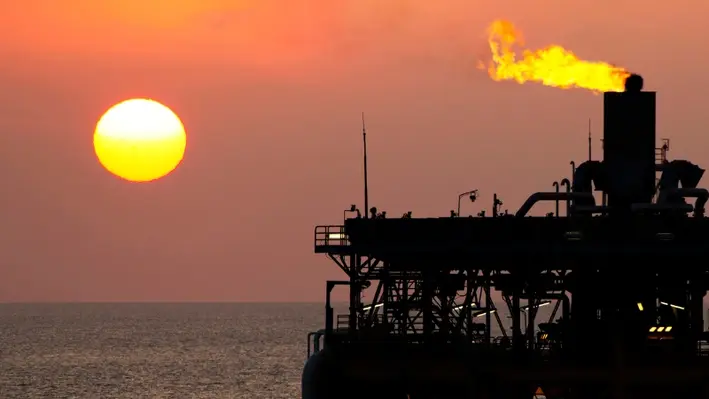
Valeura Energy Inc has taken a decision on investing in the redevelopment of the Wassana field in the offshore Gulf of Thailand
The investment is expected to create a significant value for shareholders. Currently, the production from the field is carried out through a MOPU facility whose life is expected to finish at the end of 2027. The facility is also limited in the number of future development wells that could be drilled and has insufficient oil and fluid processing capacity to recover the expected reserves and resources of oil in the G10/48 licence.
The Company has reviewed a number of different redevelopment concepts for the Wassana field and has selected a new central processing platform (CPP) with 24 production well slots as the optimal development concept to yield both the highest financial returns and the maximum total recoverable oil from the G10/48 licence. The new CPP will replace the existing MOPU production infrastructure and is expected to allow for a more holistic commercialisation of the field’s oil reserves, both by enabling more aerially extensive drilling reach and also by way of a longer facility design life, resulting in more years of cash flow generation.
The Company has selected Thai Nippon Steel Engineering & Construction Corporation Ltd, recognised for being a very capable Engineering, Procurement, Construction, and Commissioning (EPCC) contractor with four decades of experience in developing similar type of facilities in Thailand. Following the completion of the initial development wells, the Wessana field is expected to produce oil at rates of 10,000 bbls/d in the second half of 2027.
The company expects to spend US$40mn on the Wassana redevelopment project, with their guidance for Adjusted Capex being revised to US$165mn to US$185mn for the full year 2025, with free cash flow guidance also being provided.
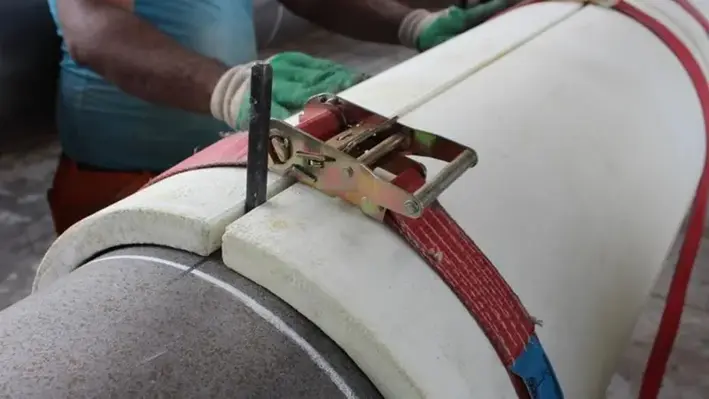
 In a contract with Shell Offshore, innovative solutions provider, CRP Subsea, will be supplying crushable foam wrap (CFW) for the Whale deepwater development situated 200 miles south of Houston in the Gulf of America
In a contract with Shell Offshore, innovative solutions provider, CRP Subsea, will be supplying crushable foam wrap (CFW) for the Whale deepwater development situated 200 miles south of Houston in the Gulf of America
The contract covers one well-set to be delivered by Q3 2025, followed further by the generation of four additional well-sets over the year. Each well-set are made of 1,798 CFW quadrants, each one metre in length. Other components include installation equipment, such as adhesive (one tube per two quadrants), adhesive dispensing guns, tie wraps, and Spanset straps.
An engineered syntactic foam, CFW comprises of a thermoset resin and hollow glass microspheres (HGMS). Once installed around the inner drill casing, it is immersed in the annulus fluid. As pressure within the annulus increases, the CFW will collapse at a pre-determined pressure and temperature combination, as dictated by well conditions. This controlled collapse allows for the expansion of annulus fluid, dispersing potentially destructive pressure build-up.
Andy Smith, Head of Sales, said, "It’s fantastic that Shell has chosen us to support this exciting deepwater project. We’ve been manufacturing and deploying crushable foam wrap for decades, helping to protect wells around the world. This contract is a great validation of our team’s expertise and dedication to delivering high-quality solutions for the industry."
The CFW will be produced at the company's Skelmersdale facility, once project engineering begins shortly.
Click here to know more about Offshore Network's well intervention conferences.
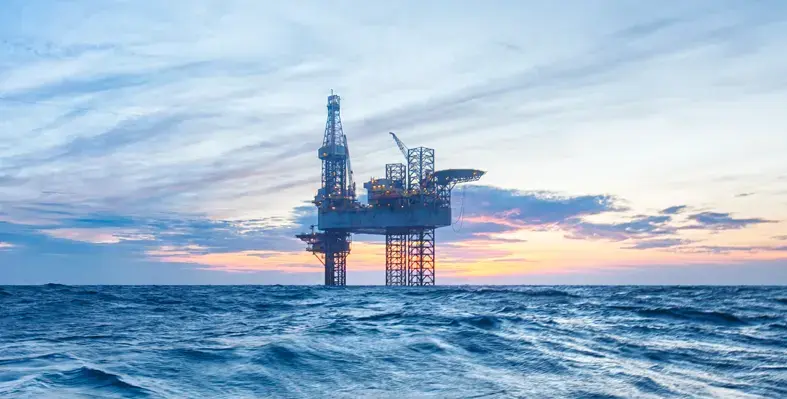

Vietnam’s oil and gas sector is at a crossroads in 2025, with new discoveries, ageing fields, and geopolitical tensions contrubuting to its 2025 outlook.
The country's state-owned National Energy and Industry Group (formerly known as PetroVietnam) is driving upstream activities. This means that interventions like workovers, stimulation, and coiled tubing are becoming critical to sustaining production.
Key 2025 developments point toward a growth potential for this market.
In January 2025, Murphy Oil Corporation announced a significant oil discovery at the Hai Su Vang-1X well in the Cuu Long Basin, located 40 miles offshore Vietnam.
Drilled to 13,124 ft, the well revealed 370 ft of net oil pay, with appraisal drilling planned.
Such discoveries demand early interventions such as hydraulic fracturing or perforating to optimise reservoir flow, creating new opportunities for service providers.
In the same month, EnQuest reached an agreement to pay US$84mn to acquire Harbour Energy's offshore Vietnam oil and gas production business.
It consists of a 53.125% interest in the Natuna Sea's Chim Sáo and Dua fields, which were both first produced by Premier Oil.
The deal, set to close in Q2 2025, could spell intervention’s role in mature fields.
Producing 5,300 boe/d, these fields have “significant upside potential” through water injection optimisation and reperforation, according to EnQuest.
On the other hand, major projects, like the US$740mn Block B gas field led by Mitsui Oil Exploration, could drive intervention demand.
With production expected to begin in 2026, Block B, located about 330 km southwest of the country, may require coiled tubing cleanouts or scale removal during commissioning.
Vietnam’s 2022 Petroleum Law and CPTPP framework further attract foreign investment, with PetroVietnam’s US$1bn 2024-2025 plan supporting upstream activities. The law includes revised tax incentives, such as a corporate income tax rate of 32%, where previously it was 50%. And, a crude oil export tax rate of 10% (where previously it ranged between 6 and 25%).
Vietnam’s ageing fields, like the Bach Ho field in the Cuu Long Basin, operated by Vietsovpetro since the 1980s, face declining output.
National oil production is projected at 177.76 thousand barrels per day in 2025, according to Mordor Intelligence.
Worldwide, according to Rystad Energy, operators are turning to cost-effective interventions like workovers, artificial lift, or chemical treatments rather than costly new drilling.
A country like Vietnam, which ranks 37 in oil production globally, could certainly follow this trend.
This shift is amplified by oil prices falling this May due to OPEC+ production hikes, making interventions a budget-friendly way to sustain output.
Advanced technologies, such as digitalised wireline and riserless systems, can enhance intervention efficiency, thereby drawing global contractors to Vietnam’s basins.
By leveraging cost-effective technologies and partnerships, service providers can capitalise on demand from mature fields and new wells.
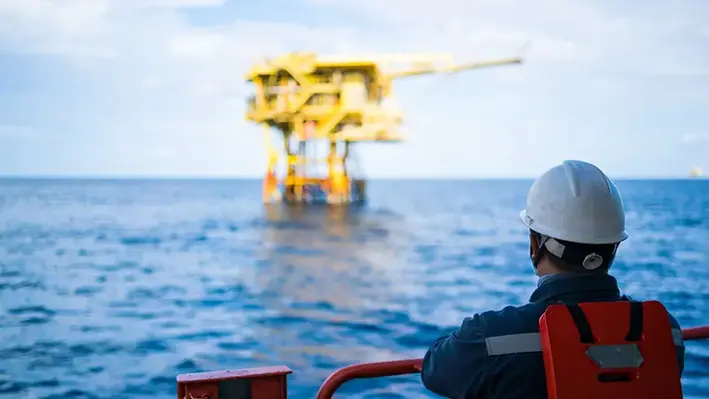

Archer, a prominent provider of drilling and well services, has secured a five-year contract with Repsol Resources UK for a range of services, including platform drilling, facilities engineering, coil tubing, wireline services, and downhole well service technologies
The deal also includes an option for a two-year extension.
This collaboration will focus on late-life operations and plug and abandonment (P&A) work across Repsol’s vast portfolio of North Sea platforms, including Piper, Claymore, Tartan, Saltire, Auk, Arbroath, Montrose, Beatrice, and Clyde. A significant aspect of the contract is the P&A scope, which involves around 130 wells.
Dag Skindlo, Archer's CEO, expressed his enthusiasm about the achievement: “We are pleased to strengthen our partnership with Repsol through this major long-term agreement within our strategic focus on P&A services. We have robust technical and attractive commercial offerings within late life and P&A, and our team is committed to delivering operational excellence, innovation, and sustainability in the decommissioning of these assets.”
This contract further establishes Archer as a reliable provider of integrated drilling and well services, with a strong focus on safe, cost-effective operations in the North Sea.
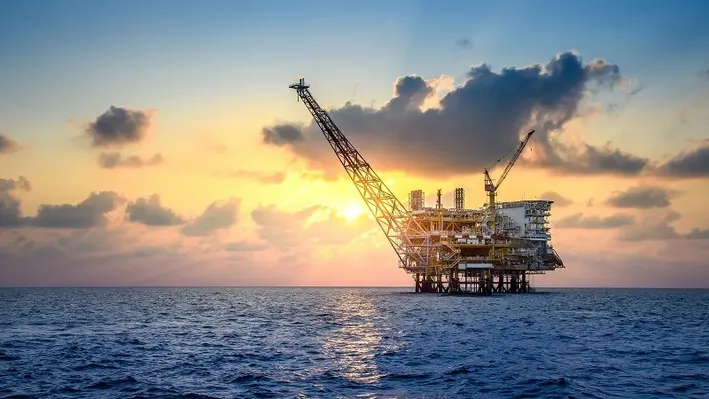

As countries, like Iraq, Oman, Syria, the UAE, and Saudi Arabia ramp up production or restore ageing fields, the demand for specialised operations to maintain, repair, or enhance oil wells is poised for decent growth.
The UAE aims to reach 5 million bpd in crude oil production capacity by 2027, requiring significant upstream development.
For this, ADNOC has partnered with SLB to deploy advanced electric completion technologies across onshore fields, starting with six electric interval control valves in the Bu Hasa field.
These technologies enhance well efficiency and reduce intervention costs, signaling a shift toward smarter, sustainable intervention methods.
Additionally, ADNOC’s US$80bn XRG investment vehicle targets low-carbon and gas projects, which could include interventions to optimise gas wells.
Saudi Aramco’s discovery of 14 new oil and gas fields in the eastern province and Empty Quarter, announced last month, includes fields like Jabu and Ayfan.
Developing these fields will likely require interventions to maximise output, such as acidising or perforations, especially in complex reservoirs.
Moreover, Saudi Arabia’s plan to increase oil production capacity from 2025 to 2027, before stabilising at 12.3 million bpd in 2028, will necessitate interventions to maintain ageing wells and optimise new ones.
Apart from this, OPEC+ plans to increase output by 411,000 bpd next month, which could mean that there will be a pressure to optimise existing wells.
Oman’s oil production is expected to surge to 775,000 bpd next month.
This demands ongoing maintenance to sustain, particularly in mature fields.
Interventions such as hydraulic fracturing and coiled tubing operations are essential to optimise well performance and extend field life.
Oman’s upstream investments signal a robust market for intervention services as the country seeks to solidify its position in global energy markets.
In Iraq, the Dhi Qar Oil Company’s recent initiative to drill 17 new wells at the Gharraf oil field reflects a push to expand production capacity.
New wells frequently require interventions like well stimulation or plugging to address declining output or mechanical issues, creating a steady pipeline of work for service providers.
In a post-Assad Syria, efforts to revive a battered oil sector are gaining traction, with the new government eyeing Azerbaijan’s expertise to rehabilitate fields in northeastern regions.
While exact numbers are unavailable, various estimates have put Syria's current oil production between 90,000 and 110,000 bpd.
This is a major fall from the 385,000 bpd reported in 2010, which could spell a need for well interventions to restore output.
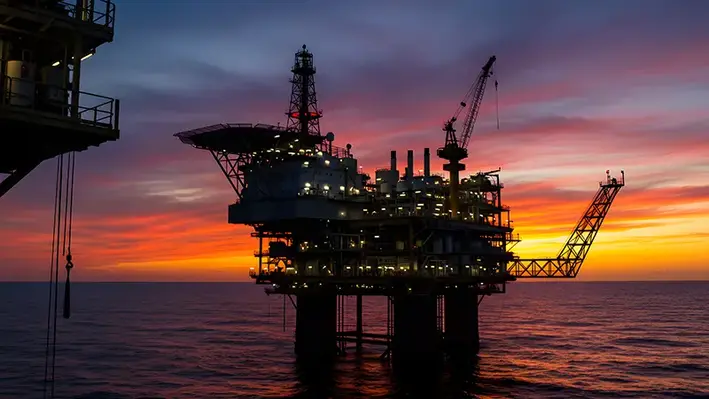
 Valaris Limited has been awarded a five-well contract offshore West Africa for drillship VALARIS DS-15
Valaris Limited has been awarded a five-well contract offshore West Africa for drillship VALARIS DS-15
The VALARIS DS-15 is equipped with BOP stacks that comprise 10,1000 psi annulars, seven ram and 15,000 psi blowout preventer (BOP) which are critical for well control.
The US$135mn-worth contract that will span nearly 250 days, is scheduled to commence in the third quarter 2026.
Including upfront payments for rig upgrades and mobilisation, the total contract value does not include the provision of additional services. There are priced options for up to five wells with an estimated total duration of 80 to 100 days.
President and chief executive officer Anton Dibowitz said, “We are excited to have secured another contract for one of our high-specification drillships. As part of this contract, the rig will be upgraded with an enhanced managed pressure drilling system. We believe this contract reflects the market’s preference for contractors that can deliver complex drilling solutions with high-specification, seventh generation drillships. In addition, this contract adds to our presence offshore West Africa, where we are well positioned for future contracting opportunities.”
Get more such insights by registering for Offshore Network's well intervention conferences. Click here.
Page 31 of 118